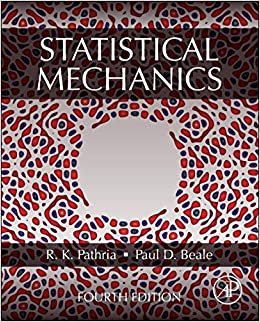Show that, for a general Gaussian distribution of variables (u_{j}), the average of the exponential of a
Question:
Show that, for a general Gaussian distribution of variables \(u_{j}\), the average of the exponential of a linear combination of the variables obeys the relation
\[\left.\left\langle\exp \left(\sum_{j} a_{j} u_{j}\right)\rightangle=\exp \left[\frac{1}{2} /\left(\sum_{j} a_{j} u_{j}\right)^{2}\rightangle\right]\]
\footnotetext{\({ }^{14}\) Note that, in the classical limit \((\hbar \rightarrow 0)\), the infinitely rapid oscillations of the factor \(\exp \{i(\boldsymbol{p} \cdot \boldsymbol{r}) / \hbar\}\) make the integral vanish. Consequently, for an ideal classical gas, the function \(g(r)\) is identically equal to 1. Quantummechanical systems of identical particles exhibit spatial correlations due to Bose and Fermi statistics even in the absence of interactions. It is not difficult to see that, for \(n \lambda^{3} \ll 1\), where \(\lambda=h / \sqrt{(2 \pi m k T)}\),}\[g(r) \simeq 1 \pm \frac{1}{g_{s}} \exp \left(-2 \pi r^{2} / \lambda^{2}\right)\]
compare with equation (5.5.27).
Step by Step Answer:






